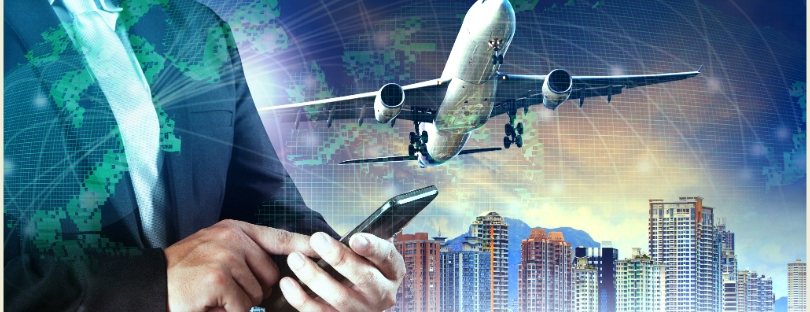
Gen Z’s Commitment to Sustainability Influences Business Travel Choices
Business travel, often termed business tourism, encompasses journeys undertaken for professional purposes, including meetings, deal negotiations, networking, trade shows, and exhibitions. Such travel is essential for establishing partnerships, engaging with suppliers and customers, maintaining inter-company relations, and promoting products or services. Business travel planning is essential, and we’re already seeing some changes!
With some smart planning, you can stay organized, and productive, and even enjoy yourself a little. The key is preparation—because the less you have to think about logistics, the more you can focus on what really matters.
Evolution of Business Travel: Trends and Influences
The landscape of business travel has been shaped by various trends and technological advancements:
- Bleisure Travel: The fusion of business and leisure travel has gained prominence, allowing professionals to combine work commitments with personal relaxation, enhancing work-life balance.
- Technological Integration: The adoption of Artificial Intelligence (AI) in travel planning and the development of smart hotels have revolutionized the industry. AI-powered virtual assistants and chatbots assist in itinerary management, while smart hotels offer personalized experiences through advanced technologies.
- Sustainable Travel Practices: There is a growing emphasis on eco-friendly travel options, such as opting for rail over air travel, to reduce carbon footprints. This shift is particularly significant among younger professionals.
The Rise of ‘Slow Business Travel’ Among Gen Z Professionals
New research from Trainline Partner Solutions (TPS) has highlighted a significant shift in business travel attitudes amongst Gen Z professionals.
The research shows a growing preference for ‘slower business travel’ – lower-carbon journeys that align career progression with environmental consciousness, even if they take longer:
- Environmental Consciousness: Approximately 60% of Gen Z professionals are inclined towards ‘slow business travel,’ favoring lower-carbon options like rail journeys, even if they are more time-consuming.
- Corporate Support: About 75% are more likely to choose sustainable travel methods if their employers provide clear policies and incentives supporting such choices.
- Career Development: Despite environmental concerns, 94% believe that business travel is crucial for career progression, aiding in client relationship building and networking with peers and senior colleagues.
- Company policies: less than half (44%) of respondents said their company currently encourages lower-carbon travel through flexible policies.
- The top benefits include building client relationships (46%) and networking with senior colleagues or peers (45%).
- Looking ahead, nearly two-thirds (65%) of those surveyed anticipate that business travel will play an even more significant role as they advance in their careers.
Andrew Cruttenden, general manager at Trainline Partner Solutions, said: “Gen Z is redefining what business travel looks like, shifting the emphasis away from purely fast and convenient, to also be mindful and sustainable.
“There is a huge opportunity for the business travel sector to adapt and address this growing need, and at TPS we can help ensure that rail travel is integrated as a seamless and attractive option that meets the demands of Gen Z business travellers.”
Current Market Dynamics and Key Players
The business travel industry is influenced by various factors and major corporations:
- Economic Factors: Despite economic uncertainties, corporate travel is projected to rise substantially, with 40% of businesses planning to increase travel in the upcoming fiscal year.
- Industry Leaders: Prominent companies in the business travel sector include American Express Company, BCD Group, CWT Global B.V., American Express Global Business Travel, Chase, Navan, Inc., TravelPerk S.L.U, Corporate Travel Management Limited, Flight Centre Travel Group Limited, and Citi Bank N.A.
These developments underscore the dynamic nature of business travel, reflecting evolving preferences, technological advancements, and the industry’s adaptation to contemporary challenges. These research findings are critical, as Gen Z is estimated to make up three-tenths of the workforce by 2030, meaning businesses will have to adapt business travel programs to the shifting demand if they want to compete in the talent market.
The Ultimate Guide to Business Travel Planning Without the Stress
Business travel can be hectic, but a solid plan makes it easier. This is a must for business travel planning:
- Create a Detailed Itinerary – Keep flight, hotel, meeting, and transportation details in one place.
- Book Smart Flights – Avoid early/late flights, prefer direct routes, and choose the right seat.
- Pick the Right Hotel – Stay near meetings, prioritize business-friendly amenities, and check noise levels.
- Pack Efficiently – Use a carry-on, choose wrinkle-free outfits, bring a travel kit, and pack a backup outfit.
- Stay Productive – Download important files, use noise-canceling headphones, and plan work time wisely.
- Minimize Fatigue – Stay hydrated, move often, sleep well, eat smart, and schedule downtime.
- Prepare for Delays – Have backup transport, and key contacts ready, and consider travel insurance.
- Enjoy the Trip – If possible, take some personal time to explore.
- Post-Trip Wrap-Up – Reflect on what worked, submit expenses, and follow up with new contacts.
The key to stress-free business travel is preparation. Plan well, stay organized, and make the most of your trip!








